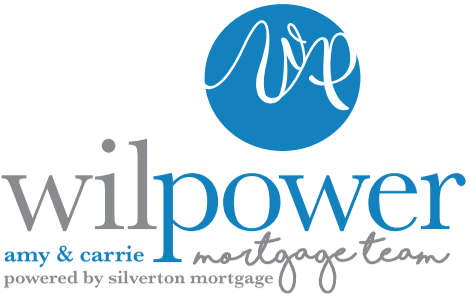Buying a home can be challenging. Especially for a first timer.
There are decisions to be made and mounds of paperwork to sign. And the amount of industry terms thrown around can make it seem like your home buying experience has you learning a new language.
Sound familiar? Relax. We’ve got this.
Before you hire a mortgage translator (these don’t exist, by the way), check out the common mortgage terms below as translated by our Wilpower Team at Silverton Mortgage.
What is a mortgage?
In simple words, a mortgage is a loan that enables a lender to purchase a home or a property. Contrary to popular belief, it’s not a requirement that you use your personal bank for a mortgage loan. In fact, some banks don’t have a mortgage lender at all. To ensure you have the smoothest home buying experience possible, you should find a lender that specializes in mortgages.
What is a mortgage rate/interest rate?
A mortgage rate is the interest that is charged on the mortgage loan. Your mortgage rate is determined by your lender. It can be fixed (stay the same for the term of your loan) or it can be variable (fluctuate based on a benchmark mortgage rate). Also commonly referred to as the interest rate, your mortgage rate is the cost you will pay each year to borrow the money. It does not reflect fees or any other charges you may have to pay for the loan.
What is APR?
Unlike the mortgage/interest rate, an annual percentage rate (APR) is a broader measure of the cost of borrowing money. The APR reflects the interest rate, any points, mortgage broker fees, and other charges that you pay to get the loan. For that reason, your APR is usually higher than your interest rate.
What are closing costs?
Closing costs are expenses over and above your down payment that buyers and sellers usually incur to complete a real estate transaction. Closing costs may include loan origination fees, discount points, appraisal fees, title searches, title insurance, surveys, taxes, deed recording fees, and credit report charges. Your lender is required by law to show these costs in a loan estimate form within three days of your home loan application.
What are prepaid items?
Prepaid items are payments made in advance of the monies due to obtain your new loan.
These amounts are necessary to fund what’s known as an “escrow” or “impound” account for property taxes and insurance. Lenders often require homeowners (especially those with less than a 20 percent down payment) to have escrow accounts associated with their mortgage loan.
What is a mortgage loan origination fee?
A mortgage origination fee is an upfront fee charged by a lender to process a new loan application. The fee is compensation for executing the loan. Origination fees pay for services such as processing, underwriting, and funding.
What is a mortgage discount point?
The mortgage discount fees or points are charged when there is a cost to buy down the interest rate. One point is equal to 1% of the amount borrowed.
What is a down payment?
A down payment is the portion of the sale price of a home that is not financed as part of the mortgage. Your down payment is the money you’ll pay at closing in addition to any mortgage-related charges and fees. Down payments are typically figured as a percentage of the total sale price (but not always) and are representative of the buyer’s immediate cash equity in the home.
What is earnest money?
Earnest money is a deposit the buyer makes to a seller that represents good faith to buy a home. In many ways, earnest money can be considered a deposit on a home, an escrow deposit, or good faith money.
Ready to buy a home?
Let the Silverton Mortgage Wilpower Team guide you through every step of the process.
Contact us today!
